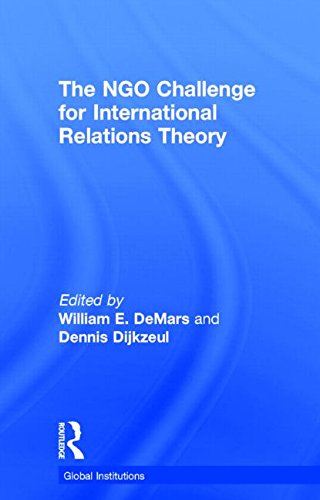

Most ebook files are in PDF format, so you can easily read them using various software such as Foxit Reader or directly on the Google Chrome browser.
Some ebook files are released by publishers in other formats such as .awz, .mobi, .epub, .fb2, etc. You may need to install specific software to read these formats on mobile/PC, such as Calibre.
Please read the tutorial at this link: https://ebookbell.com/faq
We offer FREE conversion to the popular formats you request; however, this may take some time. Therefore, right after payment, please email us, and we will try to provide the service as quickly as possible.
For some exceptional file formats or broken links (if any), please refrain from opening any disputes. Instead, email us first, and we will try to assist within a maximum of 6 hours.
EbookBell Team

4.3
38 reviewsIt has become commonplace to observe the growing pervasiveness and impact of Non-Governmental Organizations (NGOs). And yet the three central approaches in International Relations (IR) theory, Liberalism, Realism and Constructivism, overlook or ignore the importance of NGOs, both theoretically and politically.
Offering a timely reappraisal of NGOs, and a parallel reappraisal of theory in IR—the academic discipline entrusted with revealing and explaining world politics, this book uses practice theory, global governance, and new institutionalism to theorize NGO accountability and analyze the history of NGOs. This study uses evidence from empirical data from Europe, Africa, Latin America, the Middle East and Asia and from studies that range across the issue-areas of peacebuilding, ethnic reconciliation, and labor rights to show IR theory has often prejudged and misread the agency of NGOs.
Drawing together a group of leading international relations theorists, this book explores the frontiers of new research on the role of such forces in world politics and is required reading for students, NGO activists, and policy-makers.